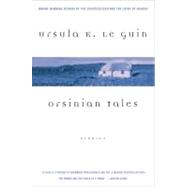
The New copy of this book will include any supplemental materials advertised. Please check the title of the book to determine if it should include any access cards, study guides, lab manuals, CDs, etc.
The Used, Rental and eBook copies of this book are not guaranteed to include any supplemental materials. Typically, only the book itself is included. This is true even if the title states it includes any access cards, study guides, lab manuals, CDs, etc.
They knew, having given him cause, that Dr Kereth might attempt to seek political asylum in Paris. Therefore, on the plane flying west, in the hotel, on the streets, at the meetings, even while he read his paper to the Cytology section, he was distantly accompanied at all times by obscure figures who might be explained as graduate students or Croatian microbiologists, but who had no names, or faces. Since his presence lent not only distinction to his country's delegation but also a certain luster to his government-See, we let even him come-they had wanted him there; but they kept him in sight. He was used to being in sight. In his small country a man could get out of sight only by not moving at all, by keeping voice, body, brain all quiet. He had always been a restless, visible man. Thus, when all at once on the sixth day in the middle of a guided tour in broad daylight he found himself gone, he was confused for a time. Only by walking down a path could one achieve one's absence?
It was in a very strange place that he did so. A great, desolate, terrible house stood behind him yellow in the yellow sunlight of afternoon. Thousands of manycolored dwarfs milled on terraces, beyond which a pale blue canal ran straight away into the unreal distance of September. The lawns ended in groves of chestnut trees a hundred feet high, noble, somber, shot through with gold. Under the trees they had walked in shadow on the riding-paths of dead kings, but the guide led them out again to sunlight on lawns and marble pavements. And ahead, straight ahead, towering and shining up into the air, fountains ran.
They sprang and sang high above their marble basins in the light. The petty, pretty rooms of the palace as big as a city where no one lived, the indifference of the noble trees that were the only fit inhabitants of a garden too large for men, the dominance of autumn and the past, all this was brought into proportion by the running of water. The phonograph voices of the guides fell silent, the camera eyes of the guided saw. The fountains leapt up, crashed down exulting, and washed death away.
They ran for forty minutes. Then they ceased. Only kings could afford to run the Great Fountains of Versailles and live forever. Republics must keep their own proportion. So the high white jets shrank, stuttering. The breasts of nymphs ran dry, the mouths of rivergods gaped black. The tremendous voice of uprushing and downfalling water became a rattling, coughing sigh. It was all through, and everyone stood for a moment alone. Adam Kereth turned, and seeing a path before him went down it away from the marble terraces, under the trees. Nobody followed him; and it was at this moment, though he was unaware of it, that he defected.
Late-afternoon light lay warm across the path between shadows, and through the light and shadows a young man and a young woman walked hand in hand. A long way behind them Adam Kereth walked by himself, tears running down his cheeks.
Presently the shadows fell away from him and he looked up to see no path, no lovers, only a vast tender light and, below him, many little round trees in tubs. He had come to the terrace above the Orangerie. Southward from this high place one saw only forest, France a broad forest in the autumn evening. Horns blew no longer, rousing wolf or wild boar for the king's hunt; there was no great game left. The only tracks in that forest would be the footprints of young lovers who had come out from Paris on the bus, and walked among the trees, and vanished.
With no intent, unconscious still of his defection, Kereth roamed back along wide walks towards the palace, which stood now in the sinking light no longer yellow but colorless, like a sea-cliff over a beach when the last bathers are leaving. From beyond it came a dim roar like surf, engines of tourist busses starting back to Paris. Kereth stood still. A few small figures hurried on the terraces between silent fountains. A woman's voice far off called to a child, plaintive as a gull's cry. Kereth turned around and without looking back, intent now, conscious, erect as one who has just stolen something-a pineapple, a purse, a loaf-from a counter and has got it hidden under his coat, he strode back into the dusk among the trees.
"This is mine," he said aloud to the high chestnuts and the oaks, like a thief among policemen. "This is mine!" The oaks and chestnuts, French, planted for aristocrats ...
Orsinian Tales
Excerpted from Orsinian Tales by Ursula K. Le Guin
All rights reserved by the original copyright owners. Excerpts are provided for display purposes only and may not be reproduced, reprinted or distributed without the written permission of the publisher.